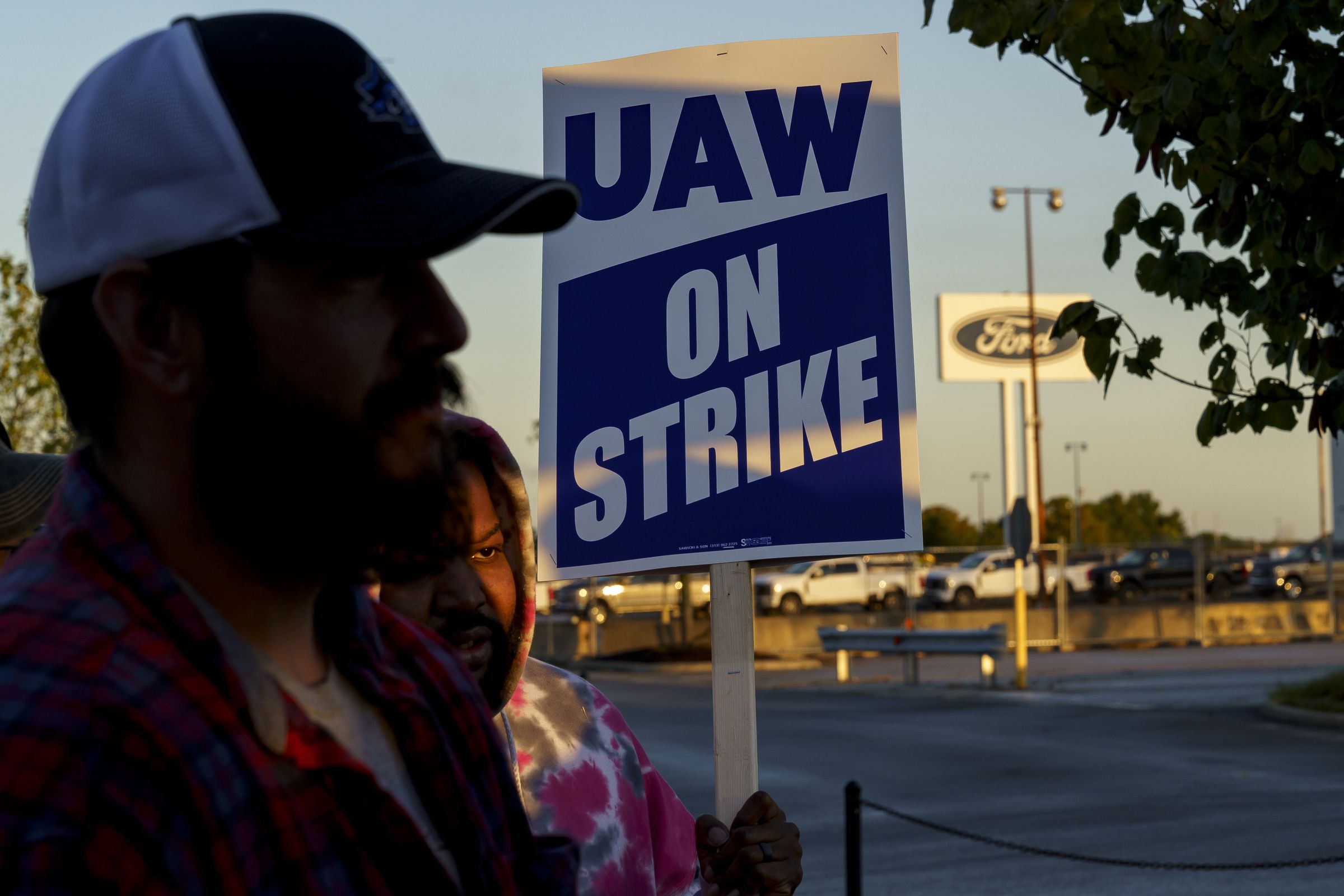Over 20,000 Ford employees will return to work while the deal is ratified, but strikes against GM and Stellantis continue.

The United Auto Workers (UAW) union and Ford have reached a tentative agreement to end the union’s six-week strike against the automaker. Last month, workers at Ford, GM, and Stellantis factories walked off the job in targeted work stoppages timed just as the large automakers shift to producing more electric vehicles than ever before.
The strike has roiled the auto industry, costing each company hundreds of millions of dollars each week in lost production and throwing the industry’s shift to electric vehicles on ice. An agreement with Ford puts more pressure on GM and Stellantis to strike a deal with the union.
According to preliminary reports, Ford agreed to a 25 percent increase in wages, plus cost of living increases, that will bump the pay increase over 30 percent to over $40 an hour. The deal is still subject to approval by the union’s membership.
“Between wage increases, COLA [cost of living adjustments], annual bonuses to retirees, and other economic gains, there is more value for our members in each individual year of this agreement than the entirety of the 2019 agreement,” UAW vice president Chuck Browning said in a video. “This deal puts more money on the table than the 2019 agreement four times over.”
“We are pleased to have reached a tentative agreement on a new labor contract with the UAW covering our U.S. operations,” Ford CEO Jim Farley said in a statement.
Farley said now that they had a tentative deal, the company was focused on restarting its plants in Kentucky, Michigan, and Chicago, as well as calling 20,000 Ford employees back to work “and shipping our full lineup to our customers again.”
Ford made no mention of its upcoming EV battery factories, which had become a central point of tension in the negotiations. Previously, Farley accused the UAW of holding talks “hostage” over the EV factories.
Like other automakers, Ford is spending tens of billions of dollars on the EV transition, including the construction of four new EV battery plants in Tennessee, Kentucky, and Michigan. Three of the four factories are joint ventures with a Chinese battery company.
As joint ventures, the battery factories will be managed by new entities created by Ford and its partner, SK On, and won’t be subject to the terms of a deal with UAW. But the UAW says the transition to electric vehicles needs to be “just” and powered by union labor. EVs are assumed to need fewer workers to assemble, fueling anxiety by union members about future job losses as more of Ford’s lineup becomes battery-operated.
The UAW has succeeded in getting at least one automaker to agree to its terms around EV factories: this week, GM CEO Mary Barra said the company agreed to put its future factories under the union’s master agreement.









